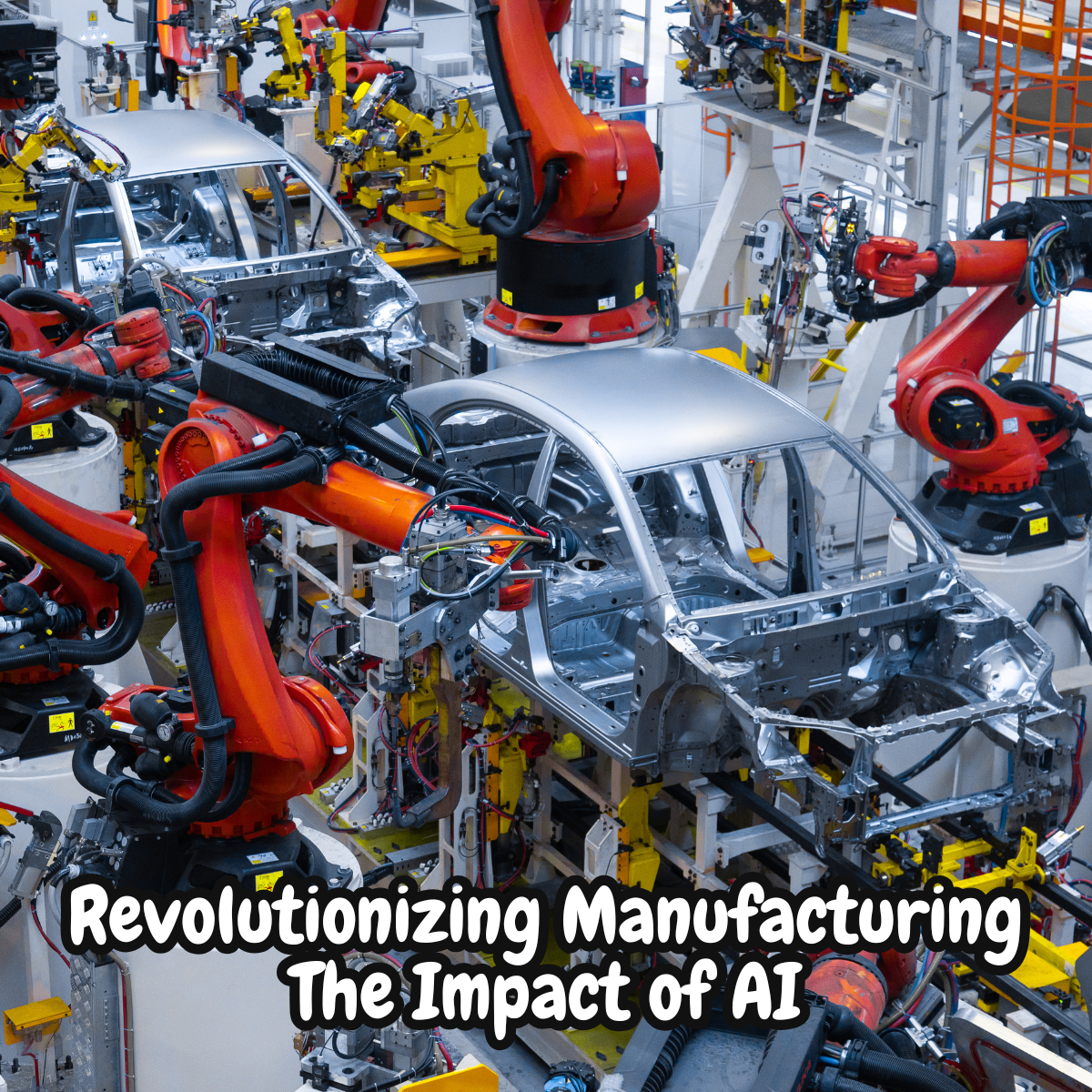Posted At: Aug 20, 2025 - 495 Views

How AI is Revolutionizing the Manufacturing Industry
In today’s rapidly evolving industrial landscape, artificial intelligence (AI) is emerging as a transformative force for manufacturing companies. By harnessing the power of AI, manufacturers can enhance efficiency, improve product quality, and optimize operations. This blog explores how AI is helping manufacturing companies stay competitive and innovate in a challenging market.
1. Predictive Maintenance
One of the most significant applications of AI in manufacturing is predictive maintenance. By analyzing data from sensors embedded in machinery, AI algorithms can predict when a machine is likely to fail. This proactive approach allows companies to perform maintenance before a breakdown occurs, reducing downtime and maintenance costs. With the ability to forecast potential failures, manufacturers can ensure uninterrupted production and extend the lifespan of their equipment.
2. Quality Control
AI-driven quality control systems are transforming how manufacturers ensure product standards. Automated inspection systems use AI-powered vision technology to detect defects on the production line. This not only enhances consistency but also reduces the need for manual inspections. Additionally, machine learning algorithms can identify anomalies in production processes, allowing for early intervention and maintaining high-quality output.
3. Supply Chain Optimization
AI plays a crucial role in optimizing supply chains. By analyzing historical data and market trends, AI can provide accurate demand forecasting. This helps manufacturers optimize inventory levels, reduce waste, and ensure they meet customer demand efficiently. Moreover, AI enhances logistics management by optimizing routing and scheduling, leading to timely deliveries and minimized transportation costs.
4. Process Automation
AI-driven robotics and automation are revolutionizing production processes. Robots equipped with AI can perform repetitive tasks such as assembly and packaging with precision and efficiency. This automation not only increases productivity but also allows human workers to focus on more complex tasks, fostering innovation and creativity on the shop floor.
5. Production Planning
AI significantly improves production planning by analyzing various factors, including production schedules, resource availability, and machine capacities. This enables manufacturers to allocate resources more effectively and optimize production efficiency. Additionally, AI allows for flexible manufacturing, enabling companies to adapt quickly to changing market demands.
6. Design and Prototyping
Generative design powered by AI can streamline the product development process. By inputting specific parameters, manufacturers can leverage AI to create optimized designs that meet their criteria. Furthermore, AI-driven simulations allow for virtual testing of designs and processes, minimizing errors and reducing costs associated with physical prototyping.
7. Enhanced Worker Safety
AI contributes to worker safety by analyzing data related to workplace conditions and employee behaviors. Predictive safety analytics can forecast potential safety incidents, enabling companies to implement preventive measures. AI-driven training programs can also simulate real-world scenarios, helping workers learn to respond to various situations safely.
8. Data-Driven Decision Making
In the age of data, AI empowers manufacturers to make informed decisions quickly. By continuously monitoring key performance indicators (KPIs), AI systems provide real-time insights that allow management to adjust processes and strategies promptly. This data-driven approach enhances overall operational efficiency.
9. Customer-Centric Manufacturing
AI enables a more customer-centric approach in manufacturing. By analyzing customer preferences and trends, AI helps companies offer personalized products, improving customer satisfaction and loyalty. Additionally, AI systems can analyze feedback and reviews, identifying areas for improvement in products and services.
10. Sustainability
AI supports sustainability initiatives in manufacturing by optimizing resource use, reducing waste, and lowering energy consumption. AI can also monitor emissions and environmental impacts, helping companies comply with regulations and enhance their sustainability practices.
Conclusion
AI is revolutionizing the manufacturing industry by driving efficiency, enhancing quality, and enabling smarter decision-making. As manufacturers integrate AI technologies into their operations, they position themselves for long-term success in an increasingly competitive landscape. By embracing the potential of AI, manufacturers can unlock new opportunities for innovation, growth, and sustainability.
